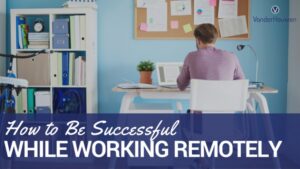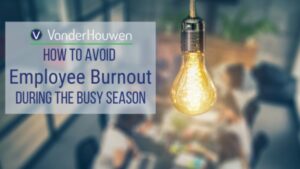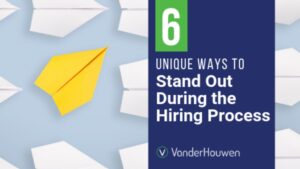How to Answer Interview Questions About a Layoff
Being laid off is a rollercoaster of emotions. At first, there’s shock. After a few days, the news settles in and you tell your friends and family. Then, you move your attention to the job search. You update your LinkedIn profile and ask your network for recommendations and job opportunities. Next, you have to prepare to talk about your layoff with any prospective employers. It can be a lot. So, we’ve compiled a few tips to help you answer interview questions about being laid off.
Contact HR or your supervising manager to find out how the company will represent your separation to others and what information they’ll give out for employment or reference checks in the future. Get any correspondence from your former employer in writing. In cases where you only receive limited information, just be honest about it when asked. You may not be able to get answers about your layoff and that’s okay! Just mention whatever information you did gather to the hiring manager and move on to your accomplishments and achievements.
Here are a few common interview questions about layoffs and some sample answers:Why was your job eliminated?
Example: After my employer was acquired by a larger company, they realized they now had two people doing the same job in different locations. They chose to redistribute some of the work around headquarters and eliminate my position here.
How many others were laid off with you?
Example: In order to reduce costs, the company laid off 5% of staff, about 30 people, and I was one of them. It’s unfortunate, but I’ve had some time to reassess my strengths and weaknesses. I’ve been actively working toward upgrading my skills through classes, teaching and workshops with others in my field.
What have you been doing since your layoff?
Example: I’ve taken this time off to expand my software skills and make my previous workflows more efficient. I’ve also worked on a few freelance projects that have kept my social and career skills sharp, and I’m ready for a new challenge.
Speak about the good things that happened while you were there or other opportunities created by the layoff. Did the layoff inspire you to analyze your strengths in more detail? Share that! Were you able to identify skill growth opportunities you’d like to pursue? Be open about that, too, if it’s relevant to the role you’re interviewing for. Express your readiness for a new opportunity and why the role would be a good fit for the company and for you.
Example: The company experienced a significant decline in revenue. This caused them to seek out cost-saving opportunities, which resulted in eliminating [number] of positions. I'm grateful for the time I spent there because I benefitted from growing my skills and working with a great team.
Highlight what you’ve done to upgrade your skills while unemployed. Did you take classes, consult, or volunteer? Have you used your free time to advance a skill you already had or learn something completely new? The interview is a great time to elaborate on those new and updated skills and how they’ll help in your future position.
Change Your Narrative
Even though you lost your job, there is an important thing to remember: You weren’t fired, you were laid off. There are some key differences between the two. While you may feel like it’s a direct reflection on your worthiness, keep in mind that a layoff is a result of one or more business circumstances that required personnel changes. Here’s the upside — most employers understand a layoff could happen to anyone and it’s not a result of your work product. Avoid trapping yourself in a loop of rumination and self-talk that your layoff was personal. Move onward and upward toward making a plan to talk about your layoff.Get the Details
To find peace of mind and have a good starting point for interview questions, research the details of your layoff. Your goal should be to gain clarity on the circumstances so you can be honest during an interview. Were you in a department or position that didn’t directly affect the company’s bottom line? Maybe your company restructured and combined two departments or cut costs after a bad quarter. They could have chosen to automate certain workflows or remove them from the company altogether.Contact HR or your supervising manager to find out how the company will represent your separation to others and what information they’ll give out for employment or reference checks in the future. Get any correspondence from your former employer in writing. In cases where you only receive limited information, just be honest about it when asked. You may not be able to get answers about your layoff and that’s okay! Just mention whatever information you did gather to the hiring manager and move on to your accomplishments and achievements.
Prepare Your Answers Ahead of Time
Interviewers commonly ask why you’re looking for a new position, so you don’t need to put the layoff on your resume. Just be prepared to talk about it. You’ve done your best to learn the reasons why the company laid people off, so prepare those in an organized manner. Discussing the layoff in a job interview could be uncomfortable without rehearsal, so make it a daily practice to answer the most common layoff-related questions as if you were in an interview. Seek out a friend or trusted colleague to role-play — they may be able to point out tone of voice, facial expressions or body language you should fine-tune before interviewing. Be sure to prepare answers that are succinct without eliminating key details.Here are a few common interview questions about layoffs and some sample answers:
Example: After my employer was acquired by a larger company, they realized they now had two people doing the same job in different locations. They chose to redistribute some of the work around headquarters and eliminate my position here.
Example: In order to reduce costs, the company laid off 5% of staff, about 30 people, and I was one of them. It’s unfortunate, but I’ve had some time to reassess my strengths and weaknesses. I’ve been actively working toward upgrading my skills through classes, teaching and workshops with others in my field.
Example: I’ve taken this time off to expand my software skills and make my previous workflows more efficient. I’ve also worked on a few freelance projects that have kept my social and career skills sharp, and I’m ready for a new challenge.
Stay Positive or Neutral
Because being laid off often feels personal, talking about it can be tricky. When talking about your previous employer, regardless of what happened during your tenure, be positive. If the company made layoff decisions you didn’t agree with, choose your words wisely. You can simply state the business reasons you know of in a factual tone that doesn’t cast a negative shadow on the employer.Speak about the good things that happened while you were there or other opportunities created by the layoff. Did the layoff inspire you to analyze your strengths in more detail? Share that! Were you able to identify skill growth opportunities you’d like to pursue? Be open about that, too, if it’s relevant to the role you’re interviewing for. Express your readiness for a new opportunity and why the role would be a good fit for the company and for you.
Talk Up Your Skills
Before you interview, organize information on any projects and programs you completed both personally and professionally. Gather work samples, spreadsheets, designs, etc. and update your portfolio. Be ready to share them if asked. When answering work-related questions, remember to relate your work with how it changed, helped, or enhanced the business. Your achievements give the hiring manager a chance to see how valuable you were to your previous company.Highlight what you’ve done to upgrade your skills while unemployed. Did you take classes, consult, or volunteer? Have you used your free time to advance a skill you already had or learn something completely new? The interview is a great time to elaborate on those new and updated skills and how they’ll help in your future position.
Prepare Your References
Great references are often key to landing a new position. Be proactive about securing references. You’ll want people who can talk about your character, work ethic, and your ability to produce a fantastic product on time. Because they’ve worked with you recently, they can talk about how easy you are to work with and how driven you are with up-to-date knowledge of your scope of work. Before providing their name to a hiring manager, verify that they’re comfortable being your reference and ensure you have the right contact information for them. You can even coach your reference through the skills and assets you’d like them to highlight.Job search taking longer than expected? Let these 5 tips re-inspire you to push forward.































































































































